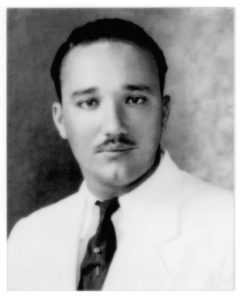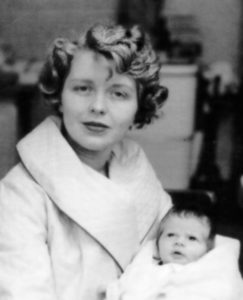
Anse-à-Vodou: A Summer with My Father in Haiti is a creative non-fiction memoir of what I’ve been told is an inspiring life, written in the style of magical realism. Woven into the book are my viewpoint as a young Western woman of my father’s Haitian culture from personal experience with Vodou; encounters with mystical phenomena; a feeling of homecoming with ancestral spirits and an affirmation that others interacted with spirits; aspects of Haitian and American history; the story of my father’s family, particularly his own and that of his brother, the world-famous soccer star Joe Gaetjens; and my self-healing journey following tragic loss.
My father was a Haitian Vodouist from a prominent Catholic Haitian family. A nationalist, he was in exile under François Duvalier’s regime when I was born in the United States. When he returned to Haiti post-Duvalier, his dream was to help bring about economic and political reform. He wanted nothing more than to see his beloved country thrive, her people happy.
 My mother devoted her life to working for the greater good, always with equanimity, pleasure, and fearless abandon. Her passion for thwarting injustice rivaled my father’s. She didn’t think twice about marrying a black man in a prejudiced blue-collar town in the 1960s.
My mother devoted her life to working for the greater good, always with equanimity, pleasure, and fearless abandon. Her passion for thwarting injustice rivaled my father’s. She didn’t think twice about marrying a black man in a prejudiced blue-collar town in the 1960s.
My parenting encouraged my psychic gifts. At a young age I was exposed to Haitian Vodou and the indigenous practices of the Cherokee in northern New England. Both cultures have a holistic approach to the natural world that includes spiritual, supernatural, mental, and physical aspects of existence far more advanced than the ideals of Western culture.
My parents’ belief that the secrets to a global utopian society were held in indigenous communities fueled my fervent interest in the plight of people living in service to the spirit of nature and my concern for preserving their cultures.
As an adult I feel compelled to expose the appalling maltreatment of native peoples. I’m passionate about shedding light on the beauty and purity of traditional beliefs, customs, and relationships.
My Uncle Joe, though Haitian, scored one of the top ten soccer goals of all time for the U.S. in a World Cup game vs England in 1950. Though he’d no political affiliation, in 1964 he was assassinated during François Duvalier’s regime by Duvalier himself, who killed him as a warning to families that opposed him. My father was also assassinated in Haiti, in 1990, shortly after my twenty-second birthday and three months before I planned to leave for Haiti to work with him for political reform.
I went to Haiti for the first time in 1989. I spent as much time as possible in various Lakou – home temple grounds of local Vodou communities. I photographed ceremonies and learned as much as I could about my ancestral heritage. I traveled deep into the countryside with Konpè Filo, a well-known Haitian activist, television and radio personality, and Vodou priest.
Woven into the book are my viewpoint, as a young Western woman of personal experience with Vodou, a feeling of homecoming with ancestral spirits, Haitian and American history, the story of my father’s family, particularly his own and that of his brother Joe, and my journey back to wholeness following my father’s tragic death.
I began writing in 1989 and stopped after my father’s murder in 1990, but never stopped thinking about finishing the book. I felt a haunting compulsion to make amends with the spirit that spoke to me on my first visit to Haiti, the spirit who’d prophesied my birth. “He told my father he had betrayed him by not writing a book on JFK twenty-five years ago…. To me he said, Do not betray me like your father did….honor the voice of spirits that hold both counsel and war in your blood…. The spirits gave you a connection between blan and Haitian…your own gateway…. a child of people born in slavery and aristocrats born in featherbeds…. Trust the path you have been given….”